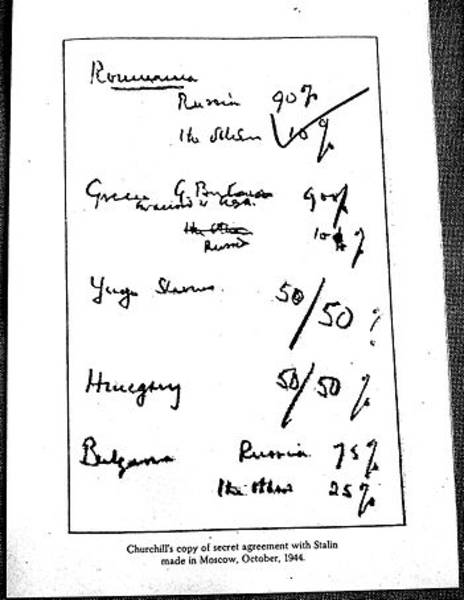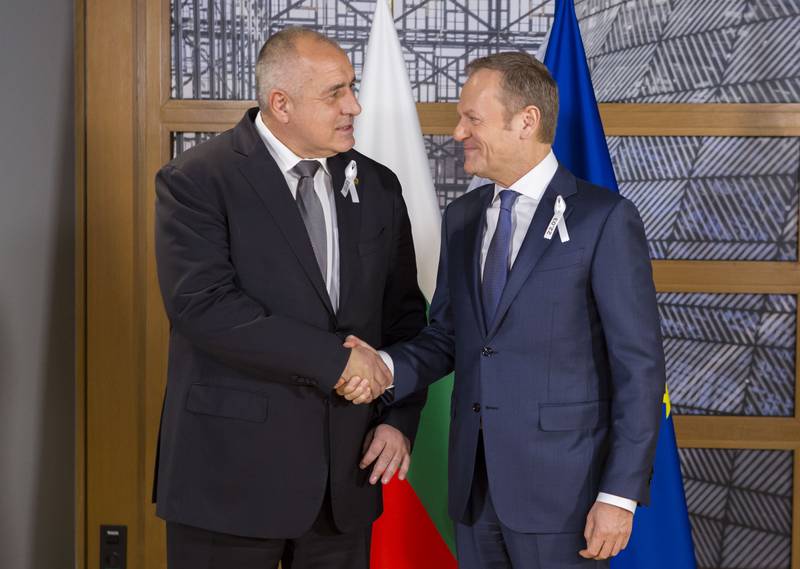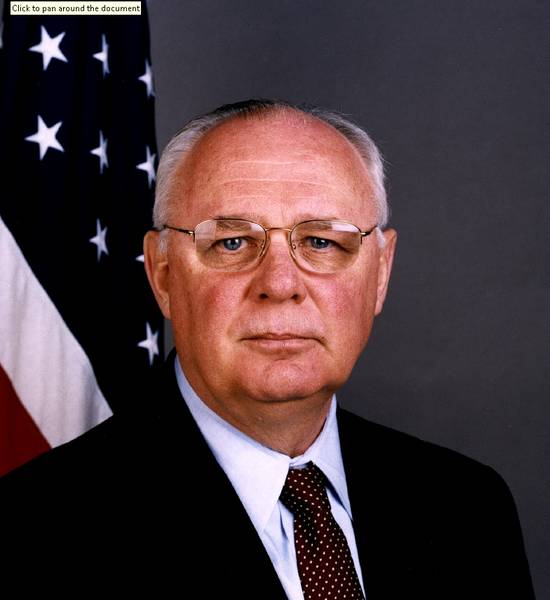Is It Time for the Napkin?
Adelina Marini, March 19, 2014
 May be it is still early to talk about a repetition of the historic episode with the napkin on which, presumably, the trio Churchill-Stalin-Roosevelt drew, after the end of World War II, where the Iron Curtain would pass through. In other words, they sketched their areas of influence. Back then, almost all countries from Central and South-East Europe remained on the dark side of the curtain, subjected to severe dictatorship (in some countries more, in others less severe), which has cruel consequences for the economy and psychology even a whole generation after the "correction" of that historical injustice. Today, however, we are facing a new period of partitioning into zones of influence after Putin's pro-Soviet instincts aroused strongly. With the annexation of Crimea, in many countries from the former Soviet zone of influence fears are growing and there is even panic that a new stage of Soviet Dark Ages is coming.
May be it is still early to talk about a repetition of the historic episode with the napkin on which, presumably, the trio Churchill-Stalin-Roosevelt drew, after the end of World War II, where the Iron Curtain would pass through. In other words, they sketched their areas of influence. Back then, almost all countries from Central and South-East Europe remained on the dark side of the curtain, subjected to severe dictatorship (in some countries more, in others less severe), which has cruel consequences for the economy and psychology even a whole generation after the "correction" of that historical injustice. Today, however, we are facing a new period of partitioning into zones of influence after Putin's pro-Soviet instincts aroused strongly. With the annexation of Crimea, in many countries from the former Soviet zone of influence fears are growing and there is even panic that a new stage of Soviet Dark Ages is coming.
Lubomir Zaoralek, the Czech foreign minster, commented that the idea to organise a referendum about borders on the basis of ethnic minorities who live there is sinister not only for Europe but for the rest of the world. According to him, this will have severe consequences, it will open the road to hell and will completely destroy the security and peace in Europe. Mr Zaoralek is convinced that Russia is trying to restore itself as an empire. "Putin never recognised the independence of the former countries of the Soviet Union when he said that regions were taken from Russia", the minister said on Prague radio, quoted by the Serbian channel B92.
The Romanian president, too, expressed deep concerns that Putin is restoring the Soviet Union. In an interview with the Associated Press, Traian Basescu says that Russia has created a chain of frozen conflicts around the Black Sea which can be unfrozen any time. Those are the conflicts in Georgia, Ukraine and Moldova. And this is already happening after the secessionist Moldovan autonomous region Transinistria demanded to join Russia.
Poland is in panic, too. In Croatia, politicians are in disarray. Vesna Pusic, the first deputy prime minister and minister of foreign and European affairs, said that even she has never seen in her life such a behaviour as that of Russia. All today's politicians have built their careers on the basis of development of cooperation and approximation with Russia, she said admitting that to all the current situation is "an unknown territory". And a famous Croatian columnist wrote in a comment [in Croatian language] for the Jutarnji list today that not Kosovo but Crimea is a precedent which seriously endangers the post-communist borders in south-east Europe and especially in the Balkans.
Can the possibility the Republika Srpska, which is part of the agreed with difficulty after the Balkan wars in the beginning fo the 1990s Dayton Bosnia, to demand joining Serbia be excluded? If a referendum is organised in Macedonia, those regions inhabited mostly by Albanians, like Gostivar and Tetovo, will most certainly decide to secede from Macedonia, Davor Butkovic suggested. "If, for that matter, Russia does really annex Crimea [which it did on March 18th], quoting the will of the majority of the population (which is not disputable), the entire system of borders in post-communist Europe will go to hell", the columnist believes.
Bulgaria, after some terrifying fatal irony has again a pro-Russian/pro-Soviet government which is split in an inter-civilisational conflict. On the one hand, the party that holds the mandate for the government - the Bulgarian Socialist Party led by the leader of the Party of the European Socialists, Sergey Stanishev - is forced by Bulgaria's EU membership to hold a pro-European line, but on the other hand members of the party congratulate openly on state-owned TV Russia for its victory in the Third Crimean War and wish the next [victories] to be the Balkans. In parliament, today failed the adoption of a declaration on the developments in Ukraine because of differences among the political forces. The ultra xenophobic party Ataka tabled a draft of its own which calls for a recognition of the referendum in Crimea, which clearly demonstrates the lack of national unity regarding Bulgaria's civilisational orientation.
Under such circumstances, it might not be too premature to ask ourselves has the time come for a new napkin on which signatures to put EU, US and Russia? Before that moment has come, though, I would like to address specifically the West.
Dear Westerners,
In the countries from the former zone of influence of the USSR, there are many civilised and well educated people who share with their hearts and souls the euro-Atlantic values and interests. They would not want to remain on the dark side of the Iron Curtain due to another terrible global circumstance. In the past, almost two years, some of us have lived like second-hand citizens of the European Union as there are attempts to draw an inter-EU "soft" curtain which is aimed at isolating the poor and hungry Easterners.
That is why, I beg you please, let us put aside our internal EU differences for a moment and give a chance to all those of us who believe that we belong to the developed world to remain on the bright side of the Iron Curtain, which means let us come to you! Against the backdrop of the economic realities, it will hardly be unbearable for you if some of us needed social benefits. But let us not repeat the mistake from before when you left millions of citizens in the Soviet concentration camp to rot, thousands of whom died on the Wall in an attempt to escape. I assure you that, in case you again decide to leave Bulgaria in the Soviet sphere of influence, there are very few people left who share the euro-Atlantic values. The rest will be happy to be with Russia.
 Boyko Borissov, Donald Tusk | © Council of the EU
Boyko Borissov, Donald Tusk | © Council of the EU Boris Johnson | © Council of the EU
Boris Johnson | © Council of the EU James W. Pardew | ©
James W. Pardew | ©